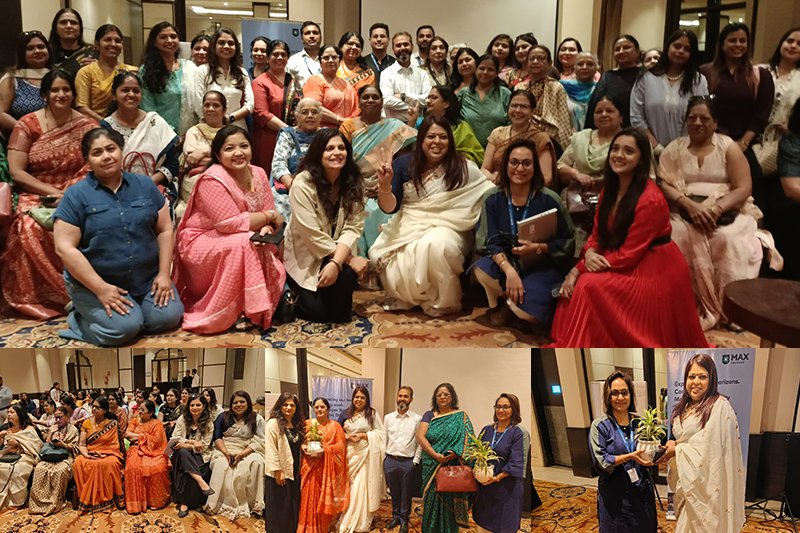
Sandhya Singh’s NGO work at a glance
Beliefs are powerful drivers of human behaviour, shaping how we perceive the world and influencing the actions we take to bring about change. In social activism, individuals often draw upon their deeply held beliefs to advocate for causes they are passionate about. One such individual who exemplifies the profound impact of beliefs on social change is Sandhya Singh, whose journey offers valuable insights into the intersection of personal convictions and collective transformation.
Understanding the Power of Beliefs in Social Change
Beliefs serve as guiding principles that inform our values, attitudes, and behaviors. They stem from a combination of personal experiences, cultural influences, and ideological frameworks, shaping our perceptions of societal issues and our role in addressing them. When it comes to driving social change, individuals who are driven by strong beliefs are often at the forefront of advocacy efforts, galvanising communities, and mobilising resources to effect meaningful transformation.
Sandhya Singh: A Case Study in Belief-Driven Activism
Sandhya Singh is a Delhi-based social activist whose work revolves around empowering marginalised communities, particularly women and children, in Dwarka, Delhi. Through her organisation and various initiatives, she aims to address systemic inequalities and promote sustainable development.
Examining Sandhya Singh’s beliefs provides valuable insights into the role of personal convictions in driving social change:
1. Empowerment Through Education: Sandhya firmly believes in the transformative power of education as a catalyst for social change. She advocates for equal access to quality education, viewing it as a fundamental right that can uplift individuals and communities out of poverty and oppression. Her belief in the inherent potential of every individual boosts her commitment to providing educational opportunities to underserved populations.
2. Gender Equality and Women’s Empowerment: Central to Sandhya’s mission is her unwavering commitment to gender equality and women’s empowerment. She recognises the entrenched patriarchal norms and systemic barriers that perpetuate gender-based discrimination and inequality. Through her advocacy and grassroots initiatives, she strives to challenge these norms and create a more inclusive and equitable society where women can fully participate and thrive.
3. Community-Centric Approach: Sandhya’s approach to social change is deeply rooted in participatory development and community engagement in Dwarka, Delhi. She believes in the importance of grassroots initiatives that prioritise the voices and needs of local communities. By fostering partnerships and collaborations with stakeholders at the grassroots level, she ensures that interventions are contextually relevant and sustainable, maximising their impact on the ground.
The Impact of Belief-Driven Activism
Sandhya Singh’s work exemplifies how beliefs can serve as powerful catalysts for social change. By aligning her actions with her deeply held convictions, she has been able to inspire positive change and make a tangible difference in the lives of marginalised individuals and communities. Her example underscores the transformative potential of belief-driven activism in addressing complex social issues and spreading happiness.
Conclusion
Beliefs play a pivotal role in shaping individuals’ approaches and driving collective action. Through the case study of Sandhya Singh, we have witnessed how deeply held convictions can fuel advocacy efforts and inspire meaningful transformation. As we continue to navigate the challenges of building a more just and equitable society, it is imperative to recognise the power of transformative beliefs in driving positive change and harness their potential to create a brighter future for all.
Solution: Sandhya Singh’s services include comprehensive capacity-building programs. These programs focus on enhancing the skills of NGO staff in areas such as project management, monitoring and evaluation, and leadership development.
By building internal capacities, NGOs can execute their programs more effectively and achieve greater impact.
4. Strategic Planning
Challenge: Without a clear strategic plan, NGOs may find it challenging to define their goals, measure progress, and make informed decisions. A lack of strategic direction can lead to mission drift and inefficient use of resources.
Solution: Under Singh’s guidance, we provide tailored strategic planning services that help NGOs articulate their vision, mission, and goals. Our NGO consultancy in Dwarka, Delhi,conducts thorough needs assessments to develop actionable and measurable strategic plans. This ensures that NGOs have a clear roadmap to follow and can adapt to changing circumstances while staying true to their core mission.
5. Visibility and Outreach
Challenge: NGOs often struggle to raise awareness about their work and engage effectively with stakeholders, including the communities they serve, donors, and the public. Limited visibility can affect fundraising efforts and community support.
Solution: Sandhya Singh’s NGO Consultancy Services offer strategic communication and outreach solutions. This includes developing impactful communication strategies, leveraging social media, and engaging with the media to highlight the NGO’s work. By enhancing their visibility, NGOs can attract more support, increase community engagement, and amplify their impact.
Conclusion
NGOs in Delhi face a myriad of challenges that can impede their progress and effectiveness. However, with the right support and expertise, these challenges can be overcome. Sandhya Singh’s NGO Consultancy Services in Dwarka, Delhi, provide comprehensive solutions that address the specific needs of NGOs. By partnering with us, NGOs can enhance their operational efficiency, expand their reach, and ultimately achieve their mission of creating positive social change.



